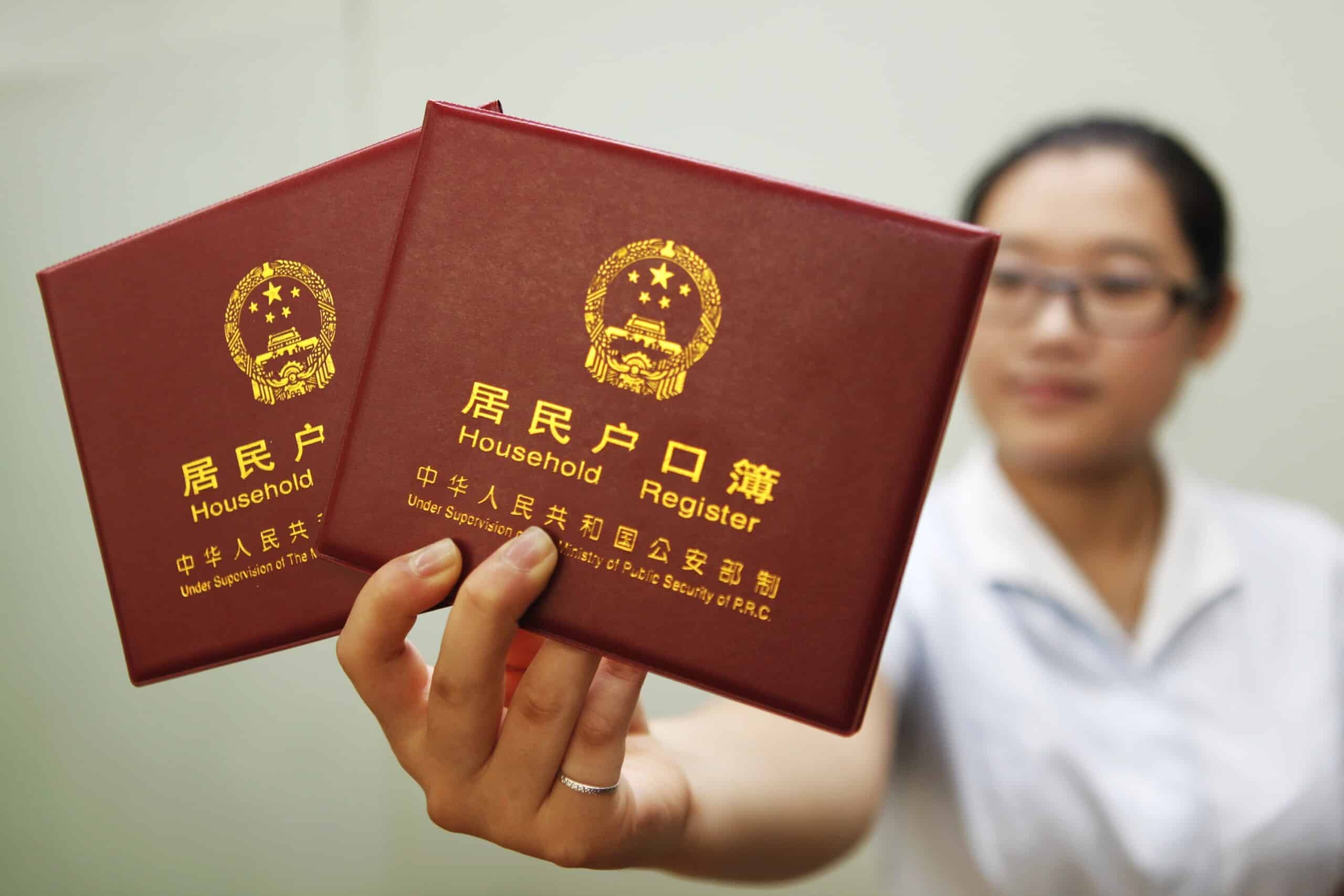
As China’s once soaring growth rates continue to decline, calls for reforms that would make it easier for people to move to cities and possibly boost the economy have grown louder. This month, one of the country’s richest provinces has heeded those calls — at least in part.
On July 22, Zhejiang’s local government officially lifted ‘hukou’ housing registration requirements for at least the next five years, granting millions of rural residents the right to move freely to urban centers across the province and — crucially — gain full access to government-run health and education services for the first time.
The measure is China’s latest experiment in reforming one of the world’s most restrictive housing policies. The hukou system effectively makes 886 million rural and ‘floating’ Chinese residents second-class citizens compared with urban dwellers who — by virtue of being born in cities and granted urban housing permits — have access to better healthcare, schools, and social services.
Without more migration, prime-age, urban populations are going to decline, and it’s very hard to keep the economy growing once your labor force is declining.
David Dollar, a senior fellow in foreign policy at the Brookings Institution
Experts have long argued that the hukou system doesn’t just unfairly discriminate against rural populations: It also restricts China’s growth potential. Once integrated into urban areas with freer access to city services, the theory is that rural migrants will become higher-spending consumers, helping China’s economy transition away from its reliance on debt-fueled investment.
“It’s common knowledge in the Chinese government that if China wants to have a modern sustainable economy, it has to do away with this policy,” says Dexter Tiff Roberts, director of China affairs at the University of Montana’s Mansfeld Center. “Complete hukou relaxation could unleash an enormous new driving force in China’s economy.”
Yet even Zhejiang’s reform experiment has a major flaw. Rural immigrants will still be barred from accessing social services in Hangzhou, the region’s most prosperous city, where some of China’s largest corporations — such as tech giant Alibaba and beverage maker Nongfu Spring — are headquartered.
Hangzhou’s exclusion likely reflects lingering roadblocks to hukou reform, including cash-strapped local governments’ reluctance to foot the bill for more social services. A NIMBY (not-in-my-backyard) mentality among existing urban officials and residents, concerned about the potential disruption that millions migrating to urban areas could cause, is another factor.
“Urban residents just don’t want the competition and the unpleasantness of the migrants moving into their city,” says David Dollar, a senior fellow in foreign policy at the Brookings Institution.
The reform efforts in Zhejiang — a province with as many people as New York and California combined — still represent one of China’s largest moves away from the hukou system thus far, signaling that China’s central government may be interested in broader reforms.
In the long term “the economics are pretty clear” that China’s hukou system will cripple under the weight of a shrinking population, Dollar says. “Without more migration, prime-age, urban populations are going to decline, and it’s very hard to keep the economy growing once your labor force is declining,” he says. “That has a way of focusing the government’s attention.”
In addition to migrants already in cities, some 164 million additional migrants could move to cities and obtain urban hukous if China abolished the current system, according to a recent study by Yang Song, an economist at Renmin University in Beijing. Under Yang’s simulation, the economic benefits of abolishing the hukou system more than offset the $250 billion he estimates such a transition would cost.
Still, some cost estimates are even higher — casting doubt on assertions that hukou reform would be an unalloyed benefit for China’s economy.
China’s secret weapon was the huge amount of exploitable, super cheap labor. And I don’t think that they have totally given up on that.
Kam W. Chan, a geography professor at the University of Washington
In 2010, China’s State Council estimated that based on 2010 currency prices, it would cost the government $13,000 to $16,000 to convert the typical migrant worker to an urban hukou. Based on the high end of that estimate, Kam W. Chan, a geography professor at the University of Washington, calculated in 2013 it would cost $4 trillion, or 44 percent of China’s 2012 GDP, to provide hukous to China’s then roughly 230 million urban migrants.
Chan pointed out that China’s government would not bear all those costs at once — the new hukou holders would use their benefits over the course of decades. In 2014, he calculated that if all of China’s floating population gained urban hukous over the course of 15 years, it would cost up to 1.5 percent of the country’s GDP each year — a cost that would likely be offset by economic gains.
Chan says he has revised his model as China’s floating population has now swelled to 376 million people. “Now, when I look at it I think it’s fairly unlikely even to achieve (comprehensive hukou reform) in 15 years,” Chan says.
Several experts told The Wire that abolishing the hukou system would be a boon to GDP growth, but that calculating exact projections is a difficult task. Qu Xiaobo, a researcher at Shanghai Academy, estimated in 2015 that abolishing the hukou system could immediately boost China’s GDP growth by 2 percentage points. The Wire reached out to several major banks and economic forecasters for their estimates of the gains, from abolishing the hukou system, but did not receive exact figures by the time of publication.
The hukou’s history has been pockmarked with tentative efforts at reform. China’s first Communist leader Mao Zedong established the system in 1958, and the policy became a central component of China’s command economy that controlled population movement and divided citizens into urban and rural areas.
But starting in 1978, China’s rural residents began to emigrate en masse to urban areas as China freed rural residents from the demands of collective agriculture, as part of the country’s reform and opening-up period.
In the 2000s, China experimented with loosening hukou restrictions in 11 of the country’s 23 provinces. But local officials ended up watering down the reforms and restricting all but a select few migrants from freely immigrating to major cities. After Xi Jinping became China’s leader in 2012, discussion of more comprehensive hukou change picked up pace again.
“Migrant workers don’t have the same benefits as the urban residents… that has significantly limited their participation in the labor market,” Cai Fang, a top government advisor and demographer at the Chinese Academy for Social Sciences, said in 2013.
Some officials, though, may be hesitant to unwind the two-tiered system that for a long time supported China’s export-and-investment driven economy.
“The hukou system allowed China to have lots of cheap labor. That’s how China conquered the world,” says Chan. “China’s secret weapon was the huge amount of exploitable, super cheap labor. And I don’t think that they have totally given up on that.”
At some point, the population of top tier cities will probably stop growing. That will be a really really worrying signal because without people, the economy can obviously never grow.
Tianlei Huang, a research fellow at the Peterson Institute for International Economics
Reforming the hukou system was added to China’s national reform agenda in 2014 and China’s government released a National New Urbanization Plan (link in Chinese) that aimed to incorporate 100 million rural migrants into urban areas in China.
University of Washington’s Chan notes that China did meet that target by 2020. But as China’s cities have swelled with more rural migrants, he says the ‘urban social benefits gap’ between rural and urban hukou holders has widened. “China wanted to reduce that gap… but they have not really been willing to foot the bill of providing more urban social benefits.”
Dropping hukou requirements in China’s biggest cities could still be a while off, meanwhile.
“At some point, the population of top tier cities will probably stop growing. That will be a really really worrying signal because without people, the economy can obviously never grow,” says Tianlei Huang, a research fellow at the Peterson Institute for International Economics. “The government wants people to move to smaller cities first, and then they will probably relax the restrictions in Shanghai and Beijing. Maybe in five or ten years.”

Grady McGregor is a staff writer for The Wire China based in Washington, D.C. He was previously a staff writer at Fortune Magazine in Hong Kong, writing features on business, tech, and all things related to China. Before that, he had stints as a journalist and editor in Jordan, Lebanon, and North Dakota. @GradyMcGregor




